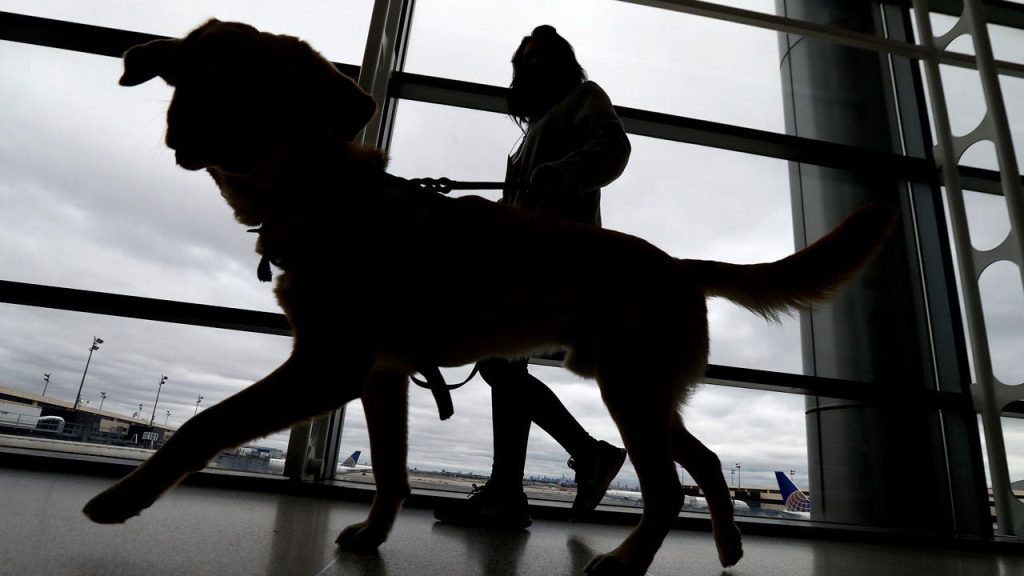New government rules in the U.S. require all dogs coming into the country from other countries to be at least 6 months old and microchipped to prevent the spread of rabies. The rule also requires vaccination for dogs that have been in countries where rabies is common, whether they are brought in by breeders, rescue groups, or traveling with their U.S. owners. The rules were published by the Centers for Disease Control and Prevention to address the challenges faced in preventing the spread of rabies.
The new regulations take effect on August 1, 2021, when a temporary order from 2021 suspending bringing in dogs from over 100 countries where rabies is problematic is set to expire. Under the new rules, dogs entering the U.S. must be old enough to be vaccinated, have a microchip with a code for rabies vaccination verification, and complete a CDC import form. Additional restrictions and requirements may apply based on where the dog has been in the previous six months, including blood testing from CDC-approved labs.
Since the last update in 1956, there has been an increase in international travel with pets and overseas operations by rescue groups and breeders to meet the demand for pets. Approximately 1 million dogs enter the U.S. each year, making it necessary to update the regulations according to Emily Pieracci, a rabies expert at the CDC. The U.S. has eliminated the type of rabies virus that normally circulates in dogs through vaccinations in the 1970s, but the virus is still fatal in animals and humans if left untreated.
Concerns over rabid dogs entering the U.S. have prompted the updated regulations. Four rabid dogs have been identified entering the country since 2015, sparking fears that more could get through. The CDC has also seen an increase in incomplete or fraudulent rabies vaccination certificates and an increase in denied entries for puppies not old enough to be fully vaccinated. The draft version of the updated regulations received a range of public comments, with some supporting the changes and others finding them costly and unwarranted.
While some, like Angela Passman, owner of a Dallas company assisting in moving pets internationally, support the new rules as a positive change, others, like Jennifer Skiff of Animal Wellness Action, have voiced concerns about the potential difficulties and costs associated with the new regulations. Skiff mentioned that some organizations working with diplomats and military personnel have had trouble meeting the requirements, leading to some owners being forced to leave their dogs behind. Overall, the new regulations aim to strengthen rabies prevention measures for dogs entering the U.S. from other countries.













